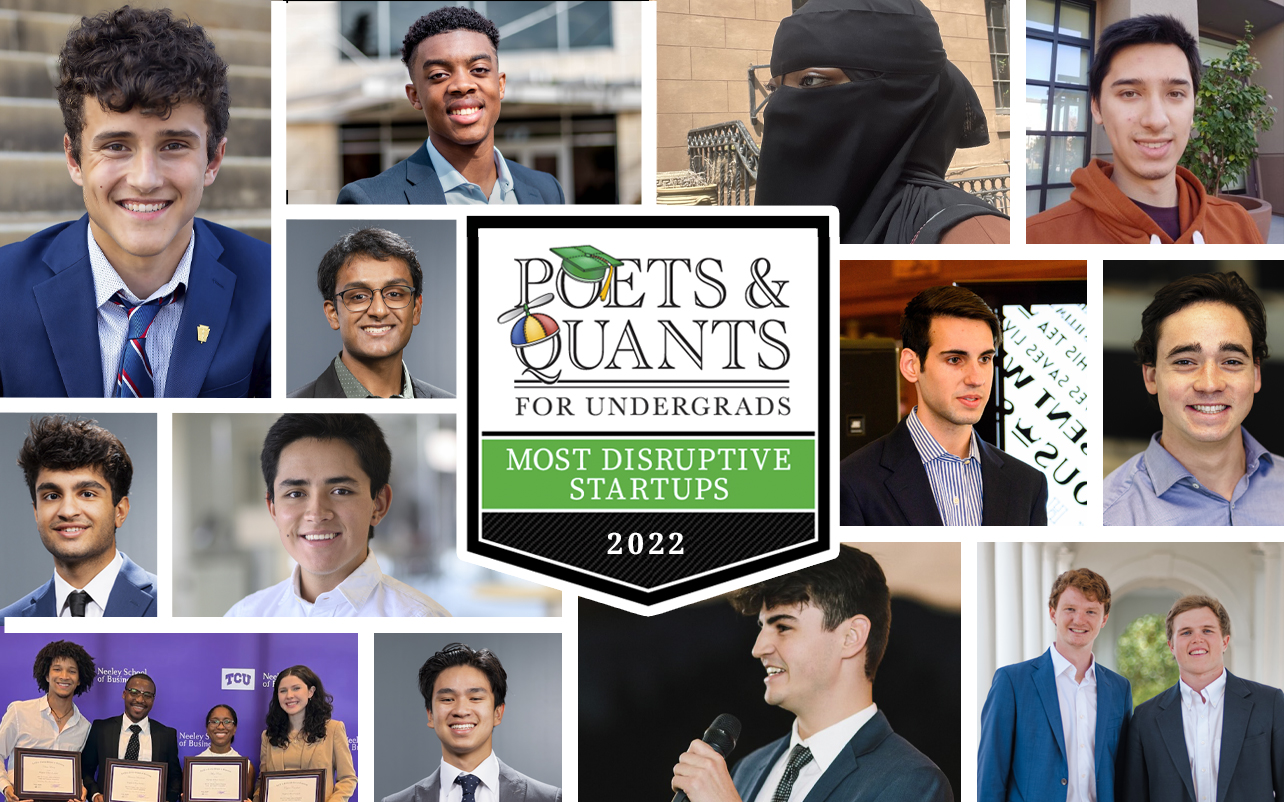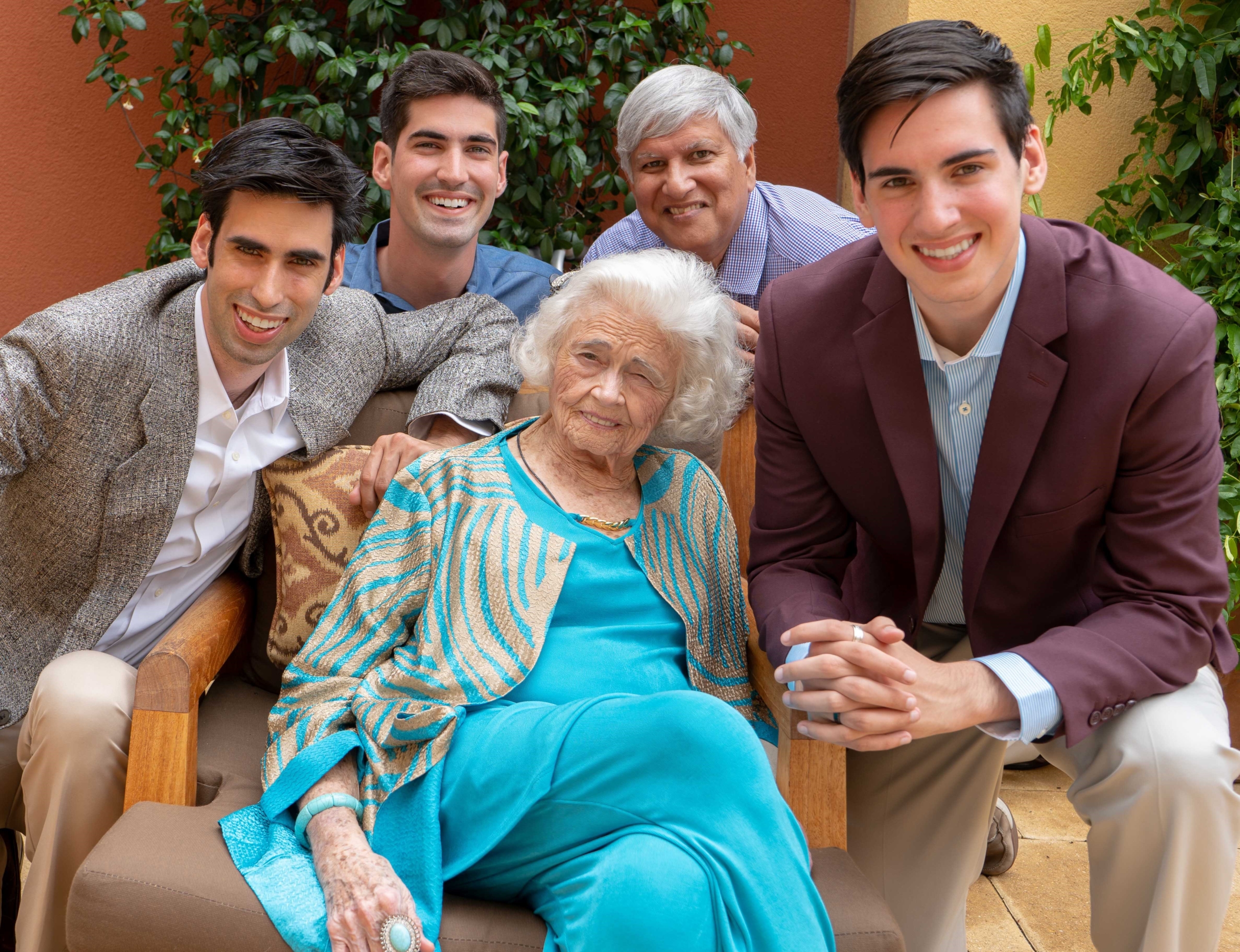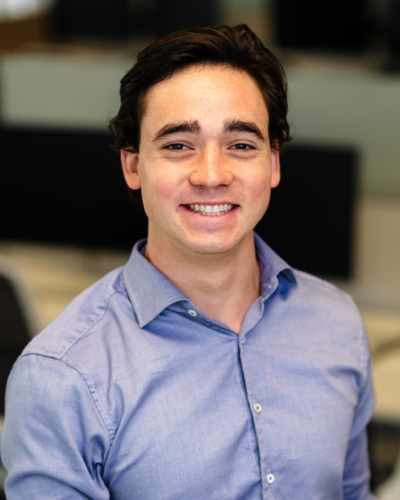
Good ideas don’t happen by chance. They are remnants of long-lasting impressions – s mystery that made a young man curious or a moment that left him riveted. Sometimes, inspiration is sparked when an issue hits home, when a loved one suffers or a dream falls short. In that moment, a serendipity emerges, where experience and insight bond to form something never seen.
The entrepreneurial journey of Raleigh Dewan began as he watched his grandmother endure Parkinson’s Disease. Targeting the nervous system, the disorder is marked by uncontrollable shaking. For Dewan’s grandmother, that meant she could no longer feed herself. Seeking solutions, Dewan was drawn to his childhood, when his oldest brother would bring him onto his movie sets. His favorite days involved action scenes, where cameras would be swung around the carnage to capture every imaginable angle.

Raleigh Dewan (right) and family, with Grandma June in the center
LEARNING BY DOING
“No matter how much the camera moved, the shot was always steady due to the Steadicam technology,” Dewan tells P&Q. “[I] couldn’t understand how we could stabilize a camera on a Hollywood film set, but not my 90-pound grandmother’s trembling hand. So, inspired by the Steadicam technology I saw on my brother’s film sets, I set out to create a solution for my grandmother – one that would allow her to comfortably feed herself and regain the sense of autonomy and dignity the disease had stolen from her.”
In response, Dewan developed The SteadiSpoon™, which he describes as a “3D-printed assistive eating device” that enables the 10 million people suffering from Parkinson’s tremors to “regain agency, autonomy, and dignity.” In recent human trials, The SteadiSpoon™ achieved 95% of the efficacy of his competitors – at half the price. Along the way, he earned a spot in the VentureWell MedTech Accelerator and developed partnerships with several state Parkinson’s Foundations. However, talent and tenacity aren’t the only reasons behind Dewan’s success. While building The SteadiSpoon™, he studied at Southern Methodist University’s Cox School of Business, where he’ll earn his BBA this spring. Here, Dewan met Professor Simon Mak, his “start-up guardian angel” who helped him secure over $100K from pitch competitions and research grants from the National Institutes of Health and the National Education Association. Now, Dewan is adding products like forks and pen attachments to further empower consumers like his grandmother. In making this pivot, he plans to continue drawing on the lessons he learned at the Cox School.
“When I had actual taxes to file for my business, cost accounting classes became far more interesting and valuable,” he adds. “Studying operations management and capacity planning lit my soul on fire as I begin applying it to my production and scaling plans. In all my classes, I have been able to directly apply the course content to my business—driving higher personal engagement with the class, a better understanding of material, deeper questions, and the perfect balance of academic and experiential learning. Beyond just the skills and concepts my business classes have instilled in me, my professors have acted as invaluable advisors for my company, guiding me through risk management, marketing challenges, strategic planning, and more.”
A LIFESTYLE AS MUCH AS A MISSION

Clayton Canfield, Washington University (Olin)
The SteadiSpoon™ is 1 of 21 undergraduate student ventures honored in Poets&Quants’ second annual “Most Disruptive Business School Startups.” This year, P&Q reached out to 23 of its highest-ranked business schools of 2022, with respondents ranging from the Wharton School to Notre Dame to the University of California-Berkeley. Like previous years, P&Q sought out startups launched by business majors with the potential to depose established models and create new markets. This year’s class isn’t just breaking new ground. They’re seeking to ‘democratize” the entire field through accessibility, reliability, convenience, and cost. They are seeking to change behavior around food waste or gain acceptance for traditional Muslim attire. They are building online platforms and mobile apps – even writing children’s books for a larger mission. Most times, they are harnessing talent from across their universities to bring their ideas to life.
No, these student entrepreneurs aren’t just sitting in their dorms kicking around ideas. They’re relentlessly talking to prospective customers; they understand that feedback is their friend – even the brutal assessments that contradict everything they initially believed. Over and over, these students are testing and refining, always questioning if they are truly solving the real problem or identifying all the possibilities. Some are even hiring employees and establishing supply chains! Every day, they are honing their pitch and hustling for every edge. That’s because entrepreneurship is a lifestyle, a mindset, and a purpose – one that attracts restless spirits who live for invention and impact.
Take Clayton Canfield, a senior at Washington University’s Olin Business School. During a break from school, Canfield worked at a sober living home, which he describes as a “halfway between inpatient treatment (rehab centers) and normal life.” In theory, people manage their recovery, while operators track items like meeting attendance, resident chores, and even rent payments. However, Canfield was stunned to learn he could gain more data from a Tik Tok post than any monitoring software. That motivated him to develop Sobriety Hub, an operations management software designed specifically for sober living homes. In the short term, Canfield plans to become the “de facto choice” for these homes. Long-term, he envisions a different play.
“We hope to be able to provide aggregate, anonymized data sets for universities to practice data science, ultimately revealing important insights into behavioral health,” he tells P&Q. For instance, how does recovery meeting attendance determine recovery outcomes? Is there a statistically significant relationship between involvement in 12-step recovery and passed drug tests? Today, no one has the data to sufficiently answer these questions; we are hoping to change that.”
SENDING A LARGER MESSAGE

Mariam Ouedraogo, New York University (Stern)
Noah Sorin has channeled his passion for sustainability into Idori. Believing “eco-conscious” behaviors should start young, Sorin developed an illustrated children’s book that is accompanied by a stuffed animal to highlight the impact of deforestation. Now, he plans to roll out a line of books and “huggable” toys that address a range of sustainability issues.
“I have always loved creative writing, but holding a physical book that I created myself for the first time was a truly special feeling,” adds Sorin, a junior at Boston University’s Questrom School of Business. “I was then able to take my book to a public park and read it in front of 30+ kids to gather feedback. Seeing kids smile and laugh as they engaged with my resources really filled my heart and it inspired me to continue working on this project because it showed that I really am capable of impacting people’s lives.”
For Mariam Ouedraogo, Ouéd Collections grew out of her belief that Muslim women should “unapologetically wear their hijab and jilbab.” Growing up, Ouedraogo tired of Muslim women being depicted as victims. Even more, she wondered why she should subscribe to the notion that they were oppressed unless they were uncovered. Rebelling against this convention, Ouedraogo began donning her jilbab as a high school sophomore. Soon enough, she was designing her own clothes.
“I shared my journey on Instagram, where I connected with other Muslim girls that said they were inspired by me and my story,” writes Ouedraogo, now a sophomore at New York University’s Stern School. “Ouéd started with me selling just a few garments a month and has now grown to me shipping 500 garments over the past several years all across the world. Ouéd is inspiring a movement of Muslim women to be empowered and unapologetic in their hijab.”

Dhanashree Mandhani, University of Illinois (Gies)
FINDING THE RIGHT NEED WITH THE RIGHT POTENTIAL
You’ll find this year’s top student entrepreneurs exploring every imaginable niche. At Texas Christian University’s Neeley School, Payton Cranford co-founded March, a haircare line for the special needs of Black travelers. Down I-35 at the University of Texas, Trenton Balcombe formed ChurchSearch. Think of it as an online platform that connects the right houses of worship to the right people – a venture that placed 2nd in the Forty Acres Founders Pre-Accelerator Program Pitch Competition. By the same token, Santa Clara University’s Darius Johnson and Luke Poltorak co-founded Drem, which enables users to tap into all of web3 in a single app. In America’s heartland – the University of Illinois – Dhanashree Mandhani has built an Ag-Tech platform called Salam Kisan to support farmers in India.
“We bring together agricultural stakeholders, services, products, and technologies,” Mandhani explains. “We provide services and AI-powered tools for farmers to increase their yield and profitability through our digital platform. We also have physical stores where farmers can buy/rent state-of-art devices, farm inputs and sell farm outputs. What truly makes us end-to-end is that we provide financial services, value addition, and government convergence. These products and services are targeted at 209 million small and marginal farmers in India.”
While the scale is appetizing, Mandhani adds that the market is ripe for overhaul, particularly after witnessing the conditions first-hand as an intern for one of her family’s businesses. “I closely watched problems that farmers in India faced,” she adds. “They included misinformation to informal credit systems, fragmented supply chain, lack of data-driven farming, lack of farm mechanization, and middle men and agents profiting off of farmers leaving them with little to no income. Let me summarize the problem in a statement: agriculture in India is decentralized, fragmented and at the least efficient level. This problem, coupled with my upbringing and the resources I was born into, gave me the inspiration to build Salam Kisan with the vision of driving rural communities toward resilience and sustainability.”
Next Page: Favorite Courses and Faculty
Page 3: 21 In-Depth Profiles of Student Startups











Questions about this article? Email us or leave a comment below.